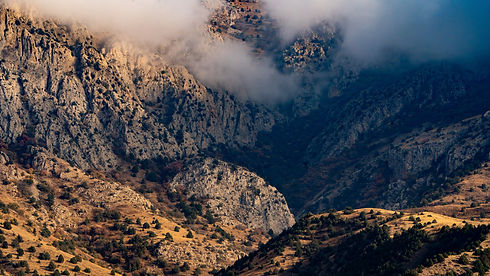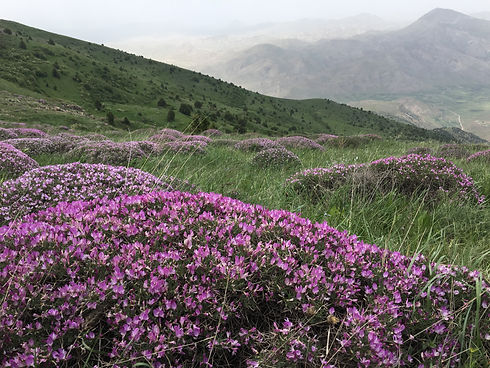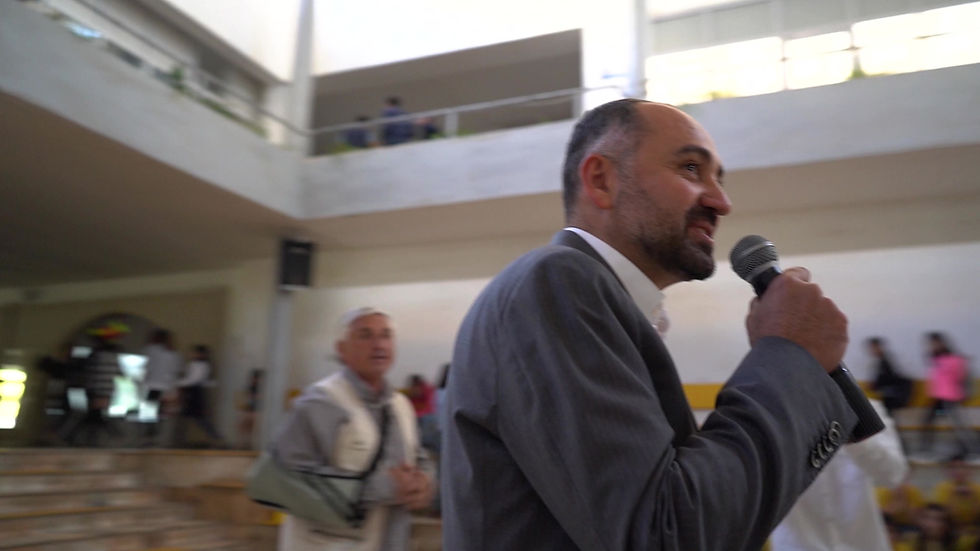News
"I have known Ruben Khachatryan for more than 15 years, and from the very beginning he has never stopped impressing me with his worldview, his deep sense of responsibility toward nature, and his ability to find creative, non-standard solutions to complex challenges.
I have had the privilege of working with him throughout different stages of my professional life — during my years in international organizations, later as Armenia’s Minister of Environment, and now in my current role. Across all these contexts, Ruben has consistently stood out as one of the most forward-thinking and visionary professionals in the field of biodiversity and conservation policy.
Beyond his professional achievements, one of Ruben’s most important contributions has been his work with youth. Through the network of eco-clubs he established across Armenia, thousands of children have grown into passionate defenders of nature, carrying forward his belief that lasting change begins with awareness and education.
His leadership combines integrity, innovation, and a genuine commitment to protecting the natural world. I am confident that his vision and experience will bring great value to the IUCN Council and to the broader global conservation community. "
- Erik Grigoryan
CEO of Environment Group
Former Minister of Environment of the Republic of Armenia
"I have known Ruben Khachatryan for several years as a valued member of the ICCA Consortium. His leadership and the way he hosted our regional meeting demonstrated exceptional dedication and professionalism. When he hosted the regional ICCA meeting, Ruben ensured the event was thoroughly organized, inclusive, and focused on elevating local community voices. He created an atmosphere of trust and collaboration that allowed participants to engage openly, share knowledge, and build practical pathways for community-led conservation. Ruben’s commitment to linking conservation with community well-being is evident in his ongoing work. He is a thoughtful leader who brings people together, supports institutional strengthening, and inspires youth and local stakeholders to take active stewardship roles. He approaches challenges with creativity, integrity, and a deep respect for culture and place. I warmly endorse Ruben’s leadership and dedication to nature and people, and I look forward to continued cooperation within the ICCA network."
- Khalid Khawaldeh
Global Coordinator, WAMIP Regional Representative (WCAC), ICCA Council Director, Dana Community Cooperative — Jordan
"Ruben Khachatryan is a living example of the ideal Councillor for the IUCN. Sincerely devoted to conserving nature – species, habitats, landscapes – he is also deeply aware of the essential role that communities and cultures play for it. All this is not fleeting theory, but has been his and his organisation's daily practice for decades. Thoughtful, sincere, humane, but also never-shy-to-act, Ruben has experience in policy, institutional practices, fundraising, public campaigns and the responsibilities that come with them. Many other members of the IUCN Council and Secretariat will find Ruben a source of understanding, advice and competent support. The best among them will find a friend."
- Grazia Borrini-Feyerabend
Member of Council of Elders of ICCA Consortium, member of CEESP, past vice Chair CEESP & WCPA
Priorities as Regional Councillor
1. Strengthening Community-Led and Cross-Border Conservation Efforts
Expanding protected and conserved areas with equity
Many protected areas are fragmented, poorly managed, and exclude local communities.
Support countries in expanding well-managed and fairly governed protected areas - including Indigenous and community-led territories - to meet the 30x30 target and improve ecological connectivity.
Connecting habitats across borders
Different species migrate across borders, but conservation efforts stop at national boundaries.
Launch coordinated species recovery programs with shared monitoring, ecological corridors, and cross-border collaboration, building on models like the Caucasus Wildlife Refuge.
Using nature to rebuild peace
Political conflicts often prevent environmental cooperation in transboundary regions.
Position conservation as a tool for peace-building and dialogue in post-conflict areas. Facilitate regional cooperation through shared ecological goals.
Combating wildlife trafficking regionally
Wildlife trafficking continues due to weak enforcement and a lack of coordination.
Establish regional coalitions of NGOs, communities, and government agencies to monitor, prevent, and prosecute wildlife crime.


2. Advancing Nature-Based Solutions That Support Public Health and Livelihoods
Adapting to climate change through ecosystems
Climate change is intensifying wildfires, floods, and droughts, threatening people and nature.
Promote nature-based climate adaptation, such as reforestation, wetland restoration, and grassland management, to build resilience in vulnerable landscapes.
Integrating biodiversity into public health
Nature loss increases disease risks and undermines access to clean air and water.
Utilize the One Health approach to integrate ecosystem protection with disease prevention, food security, and public health, collaborating with the health and agriculture sectors.
Restoring wetlands and waterways
Water shortages and pollution affect millions, especially in transboundary basins.
Restore wetlands, peatlands, and riverbanks to secure clean water and reduce flood and drought risks. Promote collaborative river basin management.
Farming in harmony with nature
Industrial agriculture damages soils, displaces rural communities, and harms biodiversity.
Support regenerative, agroecological farming practices rooted in traditional knowledge that protect soil, seeds, and pollinators while enhancing food security.
Greening the energy transition
Renewable energy and mining projects can harm ecosystems and communities if poorly planned.
Ensure all energy and mineral projects meet biodiversity and equity standards. Promote inclusive, nature-positive energy planning across the region.
Bringing nature into cities
Rapid urban growth often neglects biodiversity, making cities more vulnerable to heat and pollution.
Help cities implement nature-based infrastructure, such as green roofs, urban forests, river restoration, to enhance well-being and climate resilience.
3. Amplifying Underrepresented Regions and Strengthening Cross-Cooperation
Elevating regional voices in global policy
Eastern Europe, the Caucasus, and Central and Northern Asia are underrepresented in global conservation discussions.
Advocate for the region’s priorities in global IUCN strategies, biodiversity frameworks, and international decision-making spaces.
Improving regional coordination and governance
Conservation efforts are fragmented, with limited cooperation between countries and IUCN members.
Strengthen governance and cooperation through more inclusive platforms, joint planning, and stronger engagement between IUCN Members and Commissions.
Mobilizing direct and diversified conservation funding
Local conservation initiatives often lack access to stable and equitable funding.
Champion innovative funding schemes, including biodiversity credits, nature-positive finance, and community-accessible grants to support grassroots efforts.


4. Supporting the Next Generation of Conservationists Through Education and Mentorship
Investing in youth and marginalized voice
Young people, indigenous communities, and women remain sidelined in conservation leadership.
Launch regional youth fellowships, mentorship programs, and leadership pathways to build inclusive, community-rooted conservation movements.
Scaling up environmental education
Many communities lack access to practical conservation knowledge and opportunities.
Promote nature-based education through schools, eco-clubs, and local centers, expanding models like the SunChild Network and Eco-Clubs to build early, lasting engagement.


